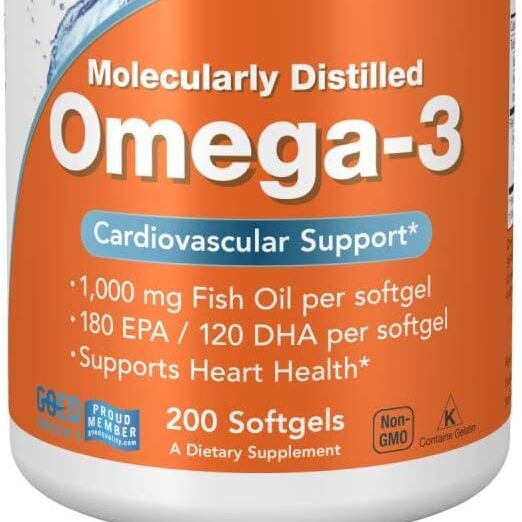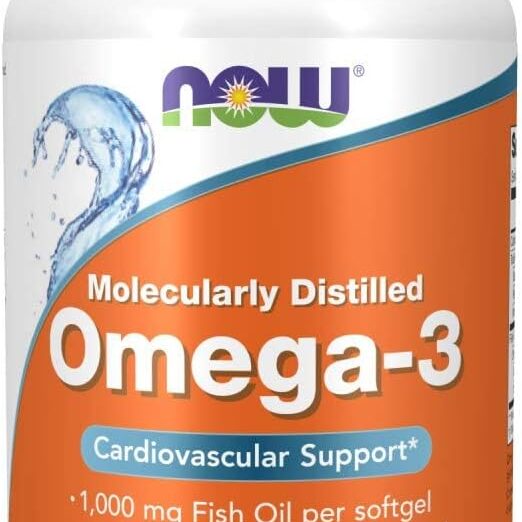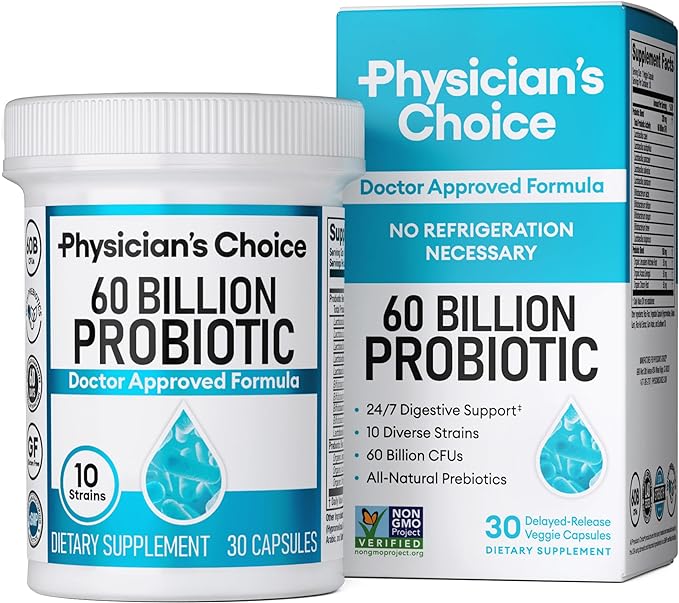What are the Top-Rated Natural Supplements?
In the quest for optimal health and wellness, natural supplements have emerged as a key player. These supplements, derived from natural sources such as plants, minerals, and vitamins, offer a range of health benefits. They can complement your diet, support physical and mental health, and even prevent chronic diseases. However, with the vast array of options available, it can be challenging to identify the top-rated natural supplements that are both effective and safe. This article delves into the world of natural supplements, highlighting the most highly regarded options based on scientific research, safety profiles, and consumer testimonials.
Key Takeaways
- Natural supplements can enhance health, fill nutritional gaps, and support disease prevention.
- Safety and efficacy are paramount when choosing supplements.
- Consultation with healthcare professionals is advised before starting any supplement regimen.

Understanding Natural Supplements
What Constitutes a Natural Supplement?
Natural supplements are products designed to supplement the diet. They come in various forms, including pills, capsules, powders, and liquids. These supplements contain one or more dietary ingredients, such as vitamins, minerals, herbs, amino acids, and enzymes. The key characteristic of natural supplements is their derivation from natural sources, as opposed to synthetic counterparts.
The Role of Supplements in Modern Diets
Modern diets, often lacking in essential nutrients due to processed foods and busy lifestyles, can benefit significantly from natural supplements. These products can help bridge nutritional gaps, ensuring the body receives all the necessary components for optimal functioning.
Top-Rated Natural Supplements
Omega-3 Fatty Acids
Omega-3 fatty acids are essential fats that the body cannot produce on its own. They are crucial for brain health, inflammation reduction, and heart health. The best natural sources of omega-3 include fish oil, flaxseed oil, and chia seeds.

Vitamin D
Vitamin D is essential for bone health, immune function, and mood regulation. While sunlight is a primary source, supplements are necessary for those living in areas with limited sun exposure or those who spend most of their time indoors.

Probiotics
Probiotics are beneficial bacteria that support gut health, aiding in digestion and immune function. Natural sources include yogurt and fermented foods, but supplements can offer a more concentrated dose of specific strains.

Antioxidants
Antioxidants, such as vitamins C and E, selenium, and carotenoids, protect the body from oxidative stress and reduce the risk of chronic diseases. They can be found in fruits, vegetables, nuts, and seeds, but supplements can provide additional benefits.
Herbal Supplements
Herbal supplements, including turmeric, ginger, and ginkgo biloba, have been used for centuries for their medicinal properties. They can offer natural ways to manage pain, improve cognitive function, and support overall health.
Selecting the Right Supplements
Quality and Purity
When choosing supplements, it’s crucial to consider the quality and purity of the products. Look for supplements that have been tested by third-party organizations such as USP (United States Pharmacopeia) or NSF International.
Dosage and Form
The effectiveness of a supplement can depend on its form and dosage. It’s important to follow the recommended dosages and consider the bioavailability of the supplement’s form.
Interactions and Side Effects
Natural supplements can interact with medications and other supplements. Discuss any new supplements with a healthcare provider to avoid adverse effects.
Incorporating Supplements into Your Routine
Starting with a Solid Foundation
Supplements should complement, not replace, a healthy diet. Focus on a balanced diet rich in fruits, vegetables, whole grains, lean proteins, and healthy fats before adding supplements.
Tailoring to Individual Needs
Supplement needs can vary based on age, gender, health status, and dietary restrictions. Personalize your supplement regimen to fit your specific health goals and needs.
Monitoring and Adjusting
Regularly assess your supplement routine to ensure it meets your changing health needs. Adjustments may be necessary based on health changes, dietary modifications, or new scientific findings.
External Resources for Further Reading
- National Institutes of Health – Office of Dietary Supplements
- MedlinePlus – Herbs and Supplements
- FDA – Dietary Supplements
Relevant Internal Links
Natural supplements offer a range of health benefits, from filling nutritional gaps to supporting overall wellness. By choosing high-quality, research-backed products and integrating them wisely into your diet, you can enhance your health in a natural, effective way. Always consult with healthcare professionals before starting any new supplement to ensure safety and efficacy.
Additional Top-Rated Natural Supplements
Magnesium
Magnesium plays a crucial role in over 300 enzymatic reactions in the body, including energy production, muscle function, and nervous system regulation. Despite its importance, many people do not get enough magnesium from their diet. Supplementing with magnesium can help fill this gap, supporting bone health, sleep quality, and stress reduction.
Zinc
Zinc is vital for immune function, wound healing, DNA synthesis, and cell division. It’s found in various foods, but supplementation may be beneficial for individuals at risk of deficiency, such as vegetarians and older adults. Zinc supplements can help boost the immune system and support overall health.
Ashwagandha
Ashwagandha is an adaptogenic herb that has been used in Ayurvedic medicine for centuries. It’s known for its ability to reduce stress, improve stamina, and enhance cognitive function. Supplementing with ashwagandha can support the body’s resilience to physical and mental stress.
Navigating the Supplement Industry
Venturing into the world of dietary supplements can often feel like navigating a labyrinth. With a plethora of vitamins, minerals, herbs, and other products on the market, it’s easy to feel overwhelmed by the sheer number of options and the health claims that accompany them. The path to making informed and strategic choices about supplements is paved with a need for understanding the industry, the products it offers, and the ways to discern the most effective and safest products. Here’s a deeper dive into how to adeptly navigate the complex and dynamic world of the supplement industry.
The Vast Landscape of the Supplement Industry
The dietary supplement industry is a significant part of the global wellness market, with a presence in the lives of many individuals seeking to improve their health and well-being. It’s a space that’s as exciting as it is rife with the need for caution. The first step in adroitly navigating this market is to understand its nature and the main actors within it.
1. Diversity of Supplements
The industry is marked by a rich variety of products, from vitamins and minerals to herbal and other natural products, with each product often coming in various forms, such as tablets, capsules, powders, and liquids. The intended benefits of these supplements are equally diverse, including but not limited to, muscle building, weight loss, and the enhancement of different aspects of physical and mental well-being.
2. Rapid Growth and Innovation
The supplement industry is a major business, with a market that has been on a path of rapid growth, driven by increasing interest in personal health and the role of e-commerce in making supplements more accessible. This high level of activity and the innovation it brings also mean that the market is in a state of constant flux, with new products and new types of supplements being introduced regularly.
3. Varying Levels of Regulation
The industry is subject to a variety of different legal and regulatory controls, which can vary greatly from one country to another. In some countries, the market is highly regulated, with products being required to meet stringent safety and efficacy standards before they can be sold. In others, the market is more loosely regulated, which can make it more difficult for consumers to be sure of the safety and quality of the products they are purchasing.
A Guide to Navigating the Supplement Industry
1. Conduct Thorough Research
The first and most important rule in navigating the supplement industry is to conduct your own research. This doesn’t just mean a cursory look at the label or the brand’s own sales pitch. It means taking a deep dive into the scientific research behind the product, the product’s formula, and the company’s track record.
- Understand the Efficacy: Research the product’s main ingredients and the science that supports their use. The National Institutes of Health (NIH) and the National Center for Complementary and Integrative Health (NCCIH) are great places to start for well-researched, non-biased data.
- Analyze the Market Reputation: A company’s track history in the industry is a major sign of the quality of its products. Research the history of the company, the quality of its other products, and the presence of any legal or financial challenges.
2. Prioritize Quality and Safety
- Look for GMP and 3rd Party Testing: Good Manufacturing Practices (GMP) and third-party quality and safety testing are two of the most important things to look for in a supplement. GMP ensures that the product is made to a high standard, while third-party testing by organizations like the U.S. Pharmacopeia (USP) or NSF International provides an extra layer of trust and reassurance.
- Analyze the Ingredients: The next step is to take a close look at the ingredients. This means not only the main, active ingredients but also the other, “inert” ingredients. Be on the lookout for ingredients that you may be allergic to, as well as any ingredients that are known to be harmful or to have the potential for harmful side effects.
3. Understand the Law of Diminishing Returns
It’s also important to understand the concept of the “law of diminishing returns” in the context of the use of supplements. The idea is that, beyond a certain point, the more you take of a supplement, the less you get in return in terms of the product’s intended health benefits. This is a good reminder that more is not always better, and that the right dosage is crucial.
4. Cultivate a Relationship with Your Healthcare Provider
One of the most important things you can do when it comes to navigating the dietary supplement industry is to maintain an open and honest conversation with your healthcare provider. They can provide you with personalized advice that takes into account your particular state of health, your current use of medications, and your personal and family history.
5. Stay Informed and Adaptable
The industry is always evolving, with new research, new products, and new laws and regulations. This means that what is true today may not be true tomorrow. The best way to navigate the industry is to stay informed, keep an open mind, and be willing to adapt your strategy as the market and the science evolve.
6. Beware of Outrageous Claims
One of the biggest red flags in the industry is the use of outrageous or unverified health claims. If a product claims to be a “miracle cure” or to work “overnight,” it’s a good sign that the company is not being honest about the product’s potential benefits and risks.
7. Leverage the Community
Finally, the health and wellness community can be a great resource for information and support. From social media groups to online forums, there are plenty of communities where you can share your own experiences and learn from the experiences of others.
Frequently Asked Questions
How do I know if I need a supplement?
The need for a supplement varies based on individual health status, diet, and lifestyle. If you suspect a deficiency or have specific health concerns, consult with a healthcare professional for personalized advice.
Can natural supplements replace medications?
No, natural supplements should not be used as a replacement for medications prescribed by a healthcare provider. While they can support overall health, they are not intended to diagnose, treat, cure, or prevent any disease.
Are there any risks associated with taking natural supplements?
Yes, like any substance, natural supplements can have potential side effects and interact with medications. It’s important to choose high-quality products, follow recommended dosages, and consult with a healthcare professional.
External Resources for Further Reading
- World Health Organization – Traditional Medicine
- National Center for Complementary and Integrative Health – Herbs at a Glance
- Consumer Reports – Guide to Supplements
In conclusion, natural supplements can be a valuable addition to a healthy lifestyle, offering support for various aspects of physical and mental well-being. By conducting thorough research, reading labels carefully, and consulting with healthcare professionals, you can navigate the supplement industry safely and effectively. Remember, supplements should complement a balanced diet and healthy lifestyle, not replace them.



